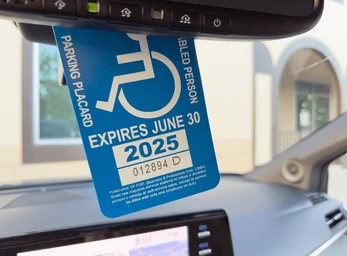Disability Pride Month is celebrated every July to draw attention to the disability community and to highlight the Americans with Disabilities Act (ADA), signed into law by President George H.W. Bush on July 26, 1990. According to the World Health Organization (WHO), 1.3 billion people, or 16% of the people on the planet, are living with disabilities; that percentage increases to 25% of all adults in the US – 70 million Americans – according to the Centers for Disease Control (CDC).
We people with disabilities are not an insignificant portion of the population. In fact, I think those numbers are low, because everyone will become disabled at some point in their life even if it’s just the result of the ageing process.

There are two models of disability. The more common understanding of disability is that it is solely a personal, medical condition – a perspective immediately apparent to people born with congenital conditions that render them disabled from birth, and, interestingly, the default understanding adopted by adults experiencing a later onset of disability. This is known as the “medical model,” and while it is insufficient to describe or explain the whole experience of disability, it is not entirely wrong: disabilities are medical conditions that affect the individual, regardless of their surrounding circumstances.
The social model of disability, which people with disabilities understand almost intuitively but find it difficult to explain or even accept, is that the experience of disability is made up of both internalized mental ideas each person holds about so-called “normal” physical conditions, and the way people with disabilities are regarded by those around them. Put another way, your “situation” is not just a result of your disability, but it is affected (usually exacerbated) by how you and other people view and respond to your disability.
Ableism is the idea that accessibility is something reserved only for the able-bodied – the normal – and that people with disabilities should accept that some areas and activities open to others will always be closed to them; it is said to be “realistic” to acknowledge this reality. But, this leads to the idea that the needs of people with disabilities are “special.” It can also lead the person with a disability to internalize a sense that their unique needs are “out-of-the-ordinary” burdens, always to be minimized as much as possible for others’ convenience – it’s the “I don’t want to be any bother” paradigm.
The idea that society has no obligation to help the disabled is at the heart of a deep insecurity many people with disabilities harbor – that insecurity is not about their disabilities themselves, but rather a feeling that ultimately people with disabilities may not really have any right to support and assistance from anyone. I cringed when I reread an old post I had written making light of how much extra “work” a restaurant outing with me is, and how people only endure that work for the great parking spot my disabled placard gets them.

I’ve since deleted the post from my archives, but I wrote: “I’d like to think the chance to spend a night out dining with me, engaging in lively, at times witty and at times deep, conversation, was why my friends put up with me. But let’s face it – it’s the parking!”
Making light of your needs as a person with a disability is one of the ways people with disabilities manifest ableism to win personal and social acceptance. But as disability writer and advocate Andrew Pulrang notes:
Disabled people have inherent value, and inherent rights, just like other people. And that includes, or should include, help to live, be as free as possible to move about and make choices, and in certain cases cared for and sustained by their fellow citizens.
The implications here are simple but profound. Disabled people can seek and use assistance they need, and fight for it when necessary, confident that they can do so from a position of strength and justice. Disabled people can advocate for support as a human right and a matter of basic fairness, not as a kindness or matter of charity. And the help they do get doesn’t obligate them to do anything more than live a fair, free, and fulfilling life for themselves. Disabled people don’t have to personally justify their support. It’s hard to grasp how radical and liberating that conviction is unless you are disabled yourself and struggled internally with whether you really deserve the things that you need.
from Andrew Pulrang, What Some Disabled People Want People With Disabilities To Know, Forbes: July 25, 2022
To combat ableism, we must see access as a human right, we must understand that all public spaces must be accessible to all people, including people with disabilities. Moreover, we must jettison from our vocabulary the phrase “special needs;” however well-intentioned it once was, and no matter how sincerely or compassionately it is spoken, the phrase is out of step with the concept of access as a human right.
